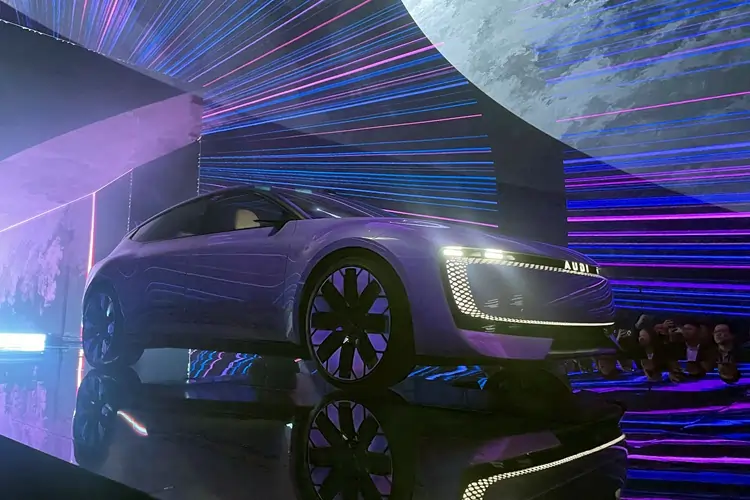
By Brenda Goh
SHANGHAI (Reuters) – Audi on Thursday unveiled a new electric vehicle brand in China whose cars will sport just the name AUDI and not its signature four-ring logo, a move aimed at attracting younger customers in the world’s largest auto market.
The premium marque owned by Germany’s Volkswagen partnered with Chinese automaker SAIC last year to co-develop cars under the brand, the first of which it plans to put on the market in the summer of next year.
It marks an effort by both Audi and SAIC to win back market share in China, where legacy local players and foreign automakers have been losing ground to EV- and hybrid-focused rivals. Reuters reported in August that the new brand would not bear the four ring logo.
Developing cars specifically for China allows foreign automakers to better target a huge customer pool.
The new EV series uses automotive architecture co-developed with SAIC, and Audi says it will rely more on local suppliers and technologies.
The EV series aims to attract younger drivers who seek high-end technology features such as advanced driver-assistance systems, Fermin Soneira, CEO of the project, told Reuters on the sidelines of an event in Shanghai to unveil the first concept car, a fully electric sportback.
“The customers (here) are much younger than the rest of the world, 30 and 35 (years old) on average in the premium segment, while the rest of the world is 55,” he said.
Besides the sportback, the partnership plans to introduce two more cars, including a sport-utility vehicle, within the next three years.
Audi sold fewer than 15,000 EVs in China in the first nine months of 2024, according to data from the China Association of Automobile Manufacturers. In comparison, Chinese premium EV brands Nio and Xpeng sold roughly ten and seven times more, respectively.
Audi’s EVs currently sold in China have the four-interlocking ring logo. These are the Q4 e-tron made with joint venture partner FAW, the Q5 e-tron SUV made with SAIC, and the Q6 e-tron made with FAW, which will be launched later this year.
(Reporting by Brenda Goh; Editing by Mark Potter)


